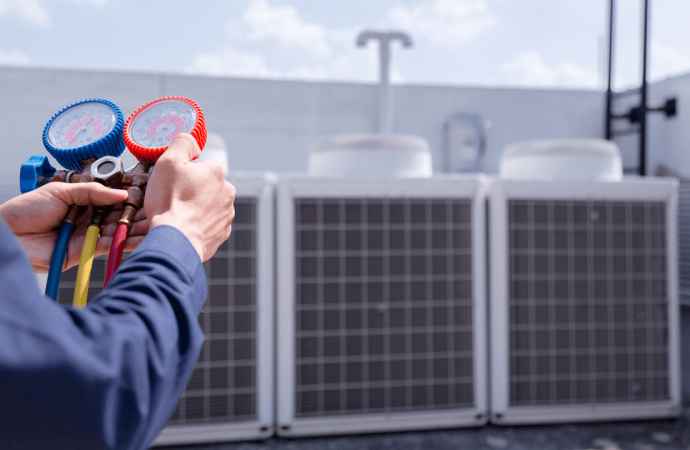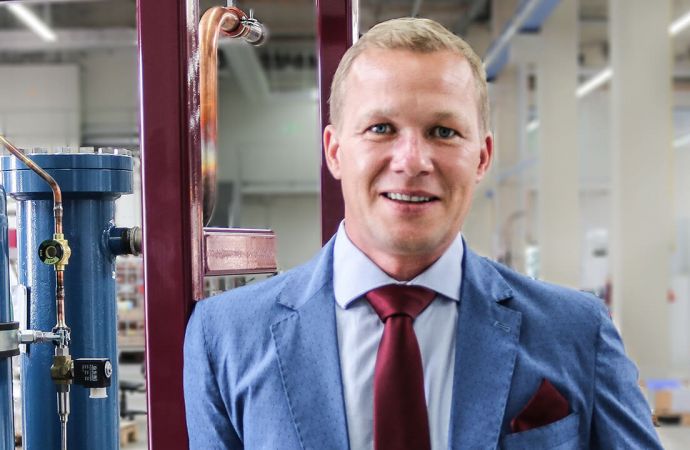Norway Dairy Plant cuts energy consumption by 40% via CO2 heat pump system, says SINTEF.

Integrated high-temperature heat pumps allow for much better energy efficiency, says SINTEF
Integrated high-temperature heat pumps and thermal storage tanks for combined heating and cooling offer improved energy efficiency and a means to accelerate decarbonization of industrial processes, according to Norwegian research center SINTEF.
As an example, SINTEF cited a 2018 CO2 heat pump installation at a dairy plant in Bergen, Norway, in an article published on the SINTEF blog by Marcel Ulrich Ahrens, a PhD candidate from the Norwegian University of Science and Technology (NTNU). The heat pump system eliminated the need for fossil fuel boilers or electric heaters.
“The results of the investigated dairy have shown that the integration of high-temperature heat pumps offers great potential for the decarbonization of industry.” the article said. “The demonstration of possible applications and operating data of high-temperature heat pumps will help to increase confidence and acceptance among potential users.”
Installation of the integrated system at the dairy resulted in an extensive recovery and exploitation of waste heat, accounting for about one-third of the required energy consumption. Compared to traditional dairy plants, the energy consumption was reduced by almost 40% or by more than 5GWh per year, corresponding to the equivalent of more than 250 Norwegian households’ energy needs.
Moreover, “it is possible for the integrated dairy to have a CO2e emission reduction of more than 90%,” said the article. “This will save the equivalent of taking more than 340 petrol cars off the street.”
With the aim of making industrial processes more efficient and decreasing greenhouse gas emissions, SINTEF’s HighEFF division is developing, testing and evaluating this and other solutions together with industry partners.
It is possible for the integrated dairy to have a CO2 emission reduction of more than 90%.” – SINTEF blog.
Big demand for process heating
The article noted that decarbonization of the industrial sector is one of the most important methods to reduce global warming. About two-thirds of industrial energy demand is to provide thermal energy for process heating, which can be provided by heat pumps. Additionally, several industrial processes have a thermal demand for heating and cooling at the same time.
Many examples of these energy requirements can be found in the food processing sector as well as various emerging applications with growing importance, such as the operation of data centers or the production of batteries.
At a dairy, the processing of dairy products requires large amounts of process cooling and heating. “Traditional dairies often use stand-alone solutions to supply the various demands,” said the article. “Cooling is provided by a refrigeration system that releases surplus heat to the environment. Required process heat is provided by fossil fuel burners or electric heaters, both with efficiencies below one.” By contrast, the coefficient of performance (COP) of heat pumps ranges from two to five.
By using high-temperature heat pumps to integrate the process, the waste heat from the refrigeration system can be upgraded to meet the process-heat demand, said the article.
In terms of higher efficiency and due to the given requirements in many industrial processes, “the best way is to use both functions of the heat pump combined,” said the article.
In addition, by integrating high-temperature heat pumps, waste heat from cooling processes can be upgraded to valuable process heat, significantly reducing the demand for electricity or other primary fuel sources. This both increases the overall energy efficiency and reduces the dependence on external conditions. “Consequently, this is one of the most relevant technologies for the utilization of waste heat, which is likely to experience a growing demand in the near future,” the article said.
Related stories



